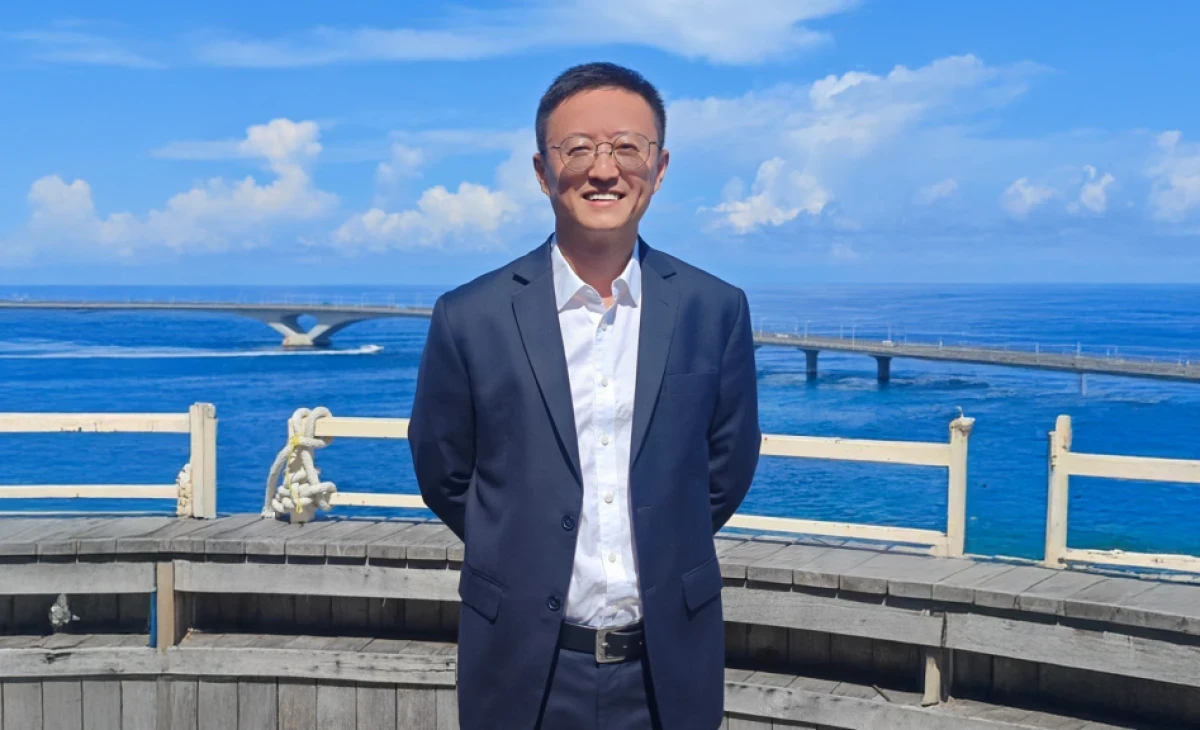Fri, 06 Feb 2026
|DHIVEHI
China and Maldives stand together for fairer global governance
14 Sep 2025
|

Photo: Chinese Ambassador to Maldives, H.E. Kong Xianhua
Eighty years ago, rising from the ruins of war, the world vowed “no more wars” and the United Nations (U.N.) was born as a result. Today, as the world is undergoing transformation and turbulence and witnessing the return of power politics, multilateralism once again stands at a narrow pass where it must advance or be swept back.
On 1 September, Chinese President Xi Jinping put forward the Global Governance Initiative (GGI) at the “Shanghai Cooperation Organisation Plus” Meeting, answering the subject of our times, namely what kind of global governance system to build and how to reform and improve global governance. Maldivian President Dr Mohamed Muizzu, who attended the meeting, immediately voiced his support, noting that the world is in urgent need of more effective governance concepts and institutions and that China’s proposal comes at the right moment.
Sovereign equality is the foremost premise of global governance. Faced with the turbulent international landscape, only when we build a solid cornerstone of sovereign equality, can all states, regardless of size, strength or wealth, have their sovereignty and dignity respected, their domestic affairs free from external interference, the right to independently choose their social system and development path, and the right to participate in, make decisions in and benefit from the global governance process as equals. The 53-year China-Maldives relationship is a microcosm of this principle. China and the Maldives have always respected and supported each other, setting a good example of equal treatment, mutual assistance, and mutual benefit between countries of different sizes. China always supports the Maldives in safeguarding its sovereignty, independence and territorial integrity, and in exploring a development path suited to its realities. China and the Maldives should join hands to safeguard this cornerstone to make the global governance system better reflect the interests and aspirations of the majority of countries and to increase the representation and say of developing countries.
International rule of law is the fundamental safeguard for global governance. Law is the plumb-line for the world. International law underpins the post-war order and gives global governance its institutional framework. When individual states practise unilateralism and the logic of power, apply international law in a selective and utilitarian way when addressing international affairs, wield national laws extraterritorially to impose the “long-arm jurisdiction”, or withdraw from international treaties at will, the plumb-line faces the risk of breaking. Both as developing countries, China and the Maldives are soberly aware that without laws and rules, there is no safeguard for strategic interests or international equity and justice. We choose to make collective voices heard in the UN General Assembly, the International Court of Justice, the International Maritime Organization and other multilateral institutions to uphold the purposes and principles of the UN Charter.
Multilateralism is the basic pathway of global governance. The essence of multilateralism is that global affairs and the future of the world should be decided by all through consultation. We should choose dialogue over confrontation, partnership over alliance and win-win over zero-sum. The world today is facing more complex and diversified global challenges and the interplay of geopolitical conflicts and hot-spot issues. In the face of such emerging challenges as climate change, terrorism, refugee crises, digital divides and pandemics, no country can survive alone. The only way to confront the challenges and embrace the future is to join hands as a globe. With similar views and positions on regional and international affairs, China and the Maldives should work side by side to defend true multilateralism and the common interests of developing countries.
People-centred approach is the underpinning value of global governance. Governance loses legitimacy, if people get no benefit. The GGI writes “shared prosperity and well-being for all” into its values, translating grand narratives of sovereign equality, international rule of law and multilateralism into “concrete gains”. We forge a greater sense of fulfilment, safety and well-being through good governance. Over half a million Maldivian people living in over 200 inhabited islands have their fundamental needs for reliable electricity, paved roads, decent housing and safe drinking water. We should join hands to integrate people’s interests in national development and deliver more benefits to them through concrete projects.
Real results are an important principle of global governance. The GGI is far more than a concept. It aims to pool consensus through tangible cooperation and delivers visible outcomes to the people. The effectiveness of governance lies in its capacity to solve problems. China and the Maldives have jointly implemented the consensus reached at COP28 in Dubai, advanced the full and effective implementation of the Paris Agreement and carried out cooperation in the Belt and Road Initiative, blue economy, digital economy and green development to narrow the governance deficit with visible achievements.
Global governance was born with the evolution of the international system and must adapt as the world changes. From the U.N. Charter to the GGI, from “no more wars” eighty years ago to “living happily together” today, every leap has been driven by ideas matched by deeds. China’s initiative does not mean to overturn the existing international order or to create another framework outside the current international system. Rather, it stems from the purposes and principles of the U.N. Charter and will continue to uphold the central role of the U.N. in global affairs. The Chinese solution aims to innovate and improve the existing international system and international institutions, making them respond more effectively to various global challenges. By responding positively to the GGI, the Maldives integrates its national aspirations to a broader vision of a community with a shared future for mankind. China stands ready to work with all partners to put the GGI into practice, so that “global governance” is no longer an abstract term in the notebooks of major powers, but a public good that people can feel, use and share, delivering still greater and broader benefits to the entire human family.
(This article is authored by Chinese Ambassador to Maldives, H.E. Kong Xianhua)








